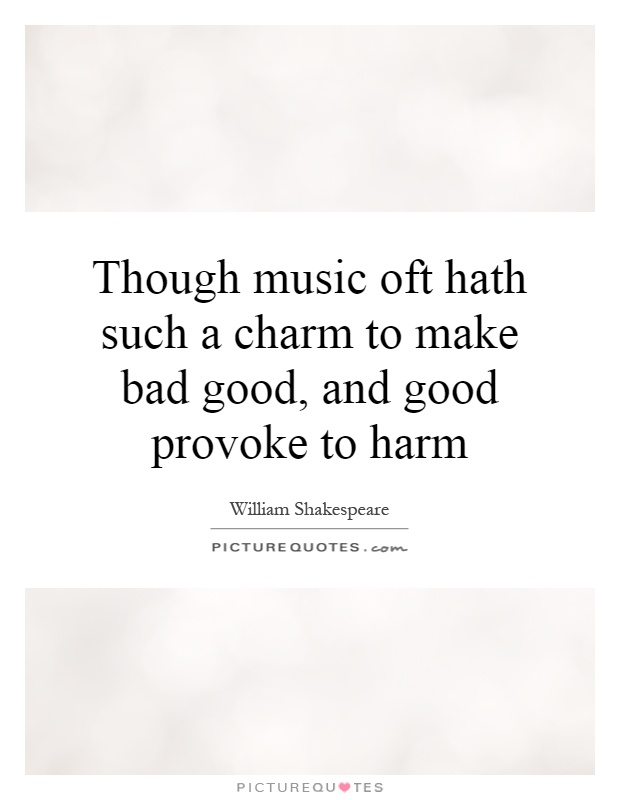Though music oft hath such a charm to make bad good, and good provoke to harm

Though music oft hath such a charm to make bad good, and good provoke to harm
William Shakespeare, the renowned playwright and poet, often explored the power of music in his works. In his play "The Merchant of Venice," Shakespeare wrote the famous line, "The man that hath no music in himself, Nor is not moved with concord of sweet sounds, Is fit for treasons, stratagems, and spoils." This sentiment reflects the idea that music has the ability to influence human behavior, both for good and for ill.Shakespeare recognized that music has the power to evoke strong emotions and can be used to manipulate people's feelings. In his plays, music is often used to create atmosphere, set the tone for a scene, or convey the inner thoughts and emotions of the characters. For example, in "Twelfth Night," the character Orsino declares, "If music be the food of love, play on," expressing the idea that music has the ability to stir up feelings of love and passion.
However, Shakespeare also understood that music can have a darker side. In "Othello," the villain Iago uses music as a tool to manipulate Othello's emotions and drive him to jealousy and madness. Iago sings a song that plants seeds of doubt in Othello's mind, leading to tragic consequences. This demonstrates how music can be used to provoke harm and incite negative emotions in people.
Despite the potential for music to be used for nefarious purposes, Shakespeare also believed in its ability to bring about positive change. In "The Tempest," the character Ariel uses music to soothe and calm the troubled souls of the characters on the island. The power of music to heal and uplift is evident in this play, showing that music can indeed have a charm to make bad good.












 Friendship Quotes
Friendship Quotes Love Quotes
Love Quotes Life Quotes
Life Quotes Funny Quotes
Funny Quotes Motivational Quotes
Motivational Quotes Inspirational Quotes
Inspirational Quotes